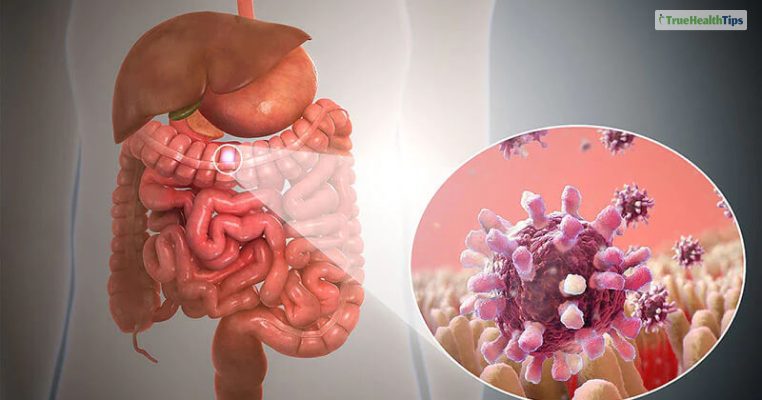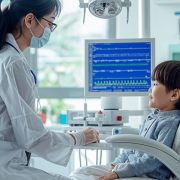
Gastroenteritis is an illness that an infection triggers, which causes inflammation of the digestive system. The symptoms of gastroenteritis include vomiting, diarrhea, and abdominal cramps. The causes of gastroenteritis include bacteria, viruses, bacterial toxins, parasites, and pharmaceutical drugs.
This is a common condition that manifests as vomiting and diarrhea. People of all ages are affected by this infection. However, usually adults are affected by Norovirus. Children are affected by Rotavirus.
The article will help you identify bacterial and viral gastroenteritis, its symptoms, diagnosis, and treatment. There is a possibility that you face complications— however, in rare cases.
Facts About Gastroenteritis:
- One out of six people in the US get gastroenteritis from eating contaminated food.
- Children are more likely to get bacterial gastroenteritis than adults.
- Hospitalization is needed in extreme cases (during complications)
- Children consume more contaminated water and food than adults.
- Young children are more likely to be infected by Clostridium difficile as they are prevalent in dirt.
- For infants still wearing diapers, if they have not needed a diaper change in some time, they are likely dehydrated.
Viral Gastroenteritis

Gastroenteritis, when caused by viruses, is common in adults and children. Particularly in individuals with a compromised immune system, the infection is prevalent. Most cases of gastroenteritis are caused by viruses, with significant morbidity for young and elderly patients.
Sometimes also known as stomach flu, the condition bears no similarity to influenza except that a virus causes it.
The United States records the most number of cases of viral gastroenteritis, with nearly 200,000 childhood deaths recorded globally. Various viruses can cause the symptoms. However, the causative agent is not easily detected. The different viruses that may cause the infection are- Rotavirus, Norovirus, astrovirus, and adenovirus.
The virus is transmitted through the fecal-oral route, which can be through contamination of water or food. The virus is also transmitted through vomitus, fomites, and airborne methods.
Off topic Recovering from stomach flu is not difficult for some people. if you have stomach flu then this article is for you. Stomach Flu Symptoms And Effective Remedies.
Symptoms
When Norovirus causes the infection, the symptoms are detected to be as follows:
- Malaise,
- myalgias,
- Low-grade fever (~ 39 degrees C)
- Non-bloody diarrhea
- Multiple bowel movements
- Severe and prolonged illness is observed in patients with a weakened immune system
- Abdominal pain
- Fever
- Vomiting
- Nausea
The acute signs of the illness can last up to one to three days. When the symptoms are persistent for more than two weeks, they are classified as chronic. Mild abdominal pain and mild fever are joint.
Diagnosis
Patients who are well-hydrated and lack risk factors are not tested as they are not at any risk of complications.
The diagnosis of gastroenteritis is through a complete blood count that reveals a mild leukocytosis. This test aids in ruling out other causes of the symptoms.
Another indicator of this condition is hemoconcentration on comprehensive blood count testing and electrolyte disturbance. The other serum markers may also appear elevated.
Treatment
The treatment of this infection is focused on hydrating the patient and controlling the electrolyte and fluid loss. The treatment goal is to reduce the discomfort from the symptoms through medications such as antiemetics, which manage the vomiting and nausea symptoms.
In addition, patients who experience continuous vomiting must be admitted to the hospital for administering intravenous fluid and constant monitoring. The rehydration is fulfilled through lactated Ringer’s solution and saline.
However, medication for elderly patients is not encouraged as it may lead to complications due to drug-drug interaction.
What is this?
Are viral and bacterial gastroenteritis similar to hemorrhagic gastroenteritis? The latter is reported in dogs and can be fatal. The symptoms are mainly noted as bloody diarrhea and vomiting, which may be fatal.
Prevention
The prevention of this infection is similar to any other food-borne illness caused by the virus. Hand-washing and disinfecting contaminated surfaces are the best ways to reduce the chances of catching the condition. The additional preventative steps include avoiding food and water that may be contaminated.
Disinfecting the contaminated clothes and articles through washing and disinfection.
Bacterial Gastroenteritis

Bacteria can cause gastroenteritis, and it is commonly called food poisoning. An inflammation of the walls of the stomach, the condition is “quite rare.”
However, it is less prevalent than viral gastroenteritis. The situation may pose a significant risk to the health and well-being of the persons.
The organisms responsible for causing the infection are Escherichia coli, Salmonella, Campylobacter, Shigella, Staphylococcus, and Yersinia.
Symptoms
The symptoms of the condition include:
- Bloody diarrhea
- Nausea
- Vomiting
- High fever
- Abdominal pain
- Abdominal cramping
- Dehydration and electrolyte imbalance
Diagnosis
The condition is detected through a health exam and assessing the medical history of the patient such that any other causes are ruled out. The diagnosis may include checking the stool sample for the presence of the bacteria. However, doctors may do additional tests to detect the source of the illness.
Treatment
The treatment includes antibiotics that can cure the condition within a few days. However, the additional treatment includes replenishing the fluids and electrolytes the patient may have lost due to vomiting and diarrhea.
The treatment can also include IV fluid replacement if the condition is severe. The main aim of hydrating the patient is to ensure no complications. It is essential to maintain the nutrients, specifically potassium and sodium.
Prevention
The preventative steps include safety precautions that prevent the transmission of bacteria to healthy individuals. These are:
- Washing hands after the use of the toilet and handling food
- Avoiding public gatherings to prevent transmission
- Avoiding close contact with healthy individuals
- WHO recommends waiting 48 hours before returning to work
- Do not store food at room temperature (very high or low temperatures) for more than a few hours.
Complications
A cold stomach sensation is prominent in people with gastroenteritis. A cold feeling in the stomach is due to several reasons, one of which is gastroenteritis.
Irrespective of the type of causal organism, they can cause cold stomachs easily. Only home remedies can cure viral gastroenteritis due to the absence of antiviral drugs.
The complications associated with the condition include:
- Intestinal tract bleeding
- Anemia
- Kidney failure
- Muscle pain
- High fever
- No control over bowel movement
Gastroenteritis Home Remedies

The home remedies for gastroenteritis are helpful in knowing when the symptoms are not severe. Due to the contagious nature of gastroenteritis, doctors usually recommend staying at home.
Thus, home remedies play a significant role in recovering from the illness. Following are the home remedies for gastroenteritis:
- It is recommended to eat salty food often and in small amounts
- Resting well
- Anti-diarrhea medication
- Fruits rich in potassium are a good option- for example, banana
- Fruit juices are also a great option to replenish the fluids and nutrients
- Over-the-counter medications can control stress and pain from the symptoms.
To avoid worsening diarrhea, you must not consume fibrous and dairy food.
Conclusion
This was all on the two types of gastroenteritis and how to recognize, treat, and prevent the problem. The primary agenda is to ensure that you are aware of the signs and symptoms of the condition. This is so that you can seek professional help when needed.
The article highlighted the importance of staying hydrated during the illness as it helps recover quickly. The body needs electrolytes and nutrients to fight the germs. Thus, providing the right amount of nutrition is necessary.
Hopefully, the article helped you understand the difference between viral and bacterial gastroenteritis.
Also Read











